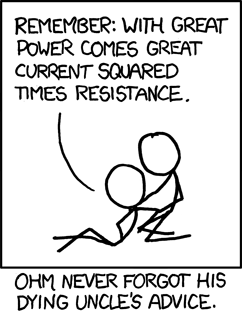So you want to be a group leader
By Guillaume Filion, filed under
motivation,
management,
leadership.
• 21 January 2014 •
People often ask me whether it is difficult to be a group leader. I usually answer “No that’s easy. Being a good group leader... that’s another story.” It is one of these jobs for which there is no training. It is also one of these jobs about which there is no information. As the leader of a team of scientists, you will have to face your problems alone, because scientific leadership is...
The best kept secret in the world
 The need for solid leadership skills is fully acknowledged in the civilized world, but in academic research this culture is lagging behind. So far behind that we have to admit the plain truth: leadership in science is a taboo. Understandably, academic researchers are reluctant to share their experience because they have little authority to do so, and because the information is often confidential. I could tell how I solved “the case of a post-doc of mine who put his music too loud in the lab”, but since all my colleagues would identify this person, I would end up with a serious issue in my team.
The need for solid leadership skills is fully acknowledged in the civilized world, but in academic research this culture is lagging behind. So far behind that we have to admit the plain truth: leadership in science is a taboo. Understandably, academic researchers are reluctant to share their experience because they have little authority to do so, and because the information is often confidential. I could tell how I solved “the case of a post-doc of mine who put his music too loud in the lab”, but since all my colleagues would identify this person, I would end up with a serious issue in my team.
There are also systemic reasons for this lack of culture. Academic recognition goes to the individual, not to the team. Very often, the benefit for non first authors of a scientific manuscript is so small that investigators’ time is better spent working on their solo projects. The work conditions themselves make it hard to defend the benefits of teamwork.
And finally there is this. Almost all the legendary scientists, and by legendary I mean the ones that we take as examples, are depicted as autistic geniuses. Just thinking of something like “Newton et al.” or “the Einstein team” gives the shivers. Alice Sapienza in Managing Scientists goes straight to the point.
In my early discussions with groups of scientists about leadership, almost invariably someone would tell me that he or she had witnessed or knew about a laboratory that was led ineffectively yet still produced good scientific results.
In short, for many of us, it is doubtful whether leadership is useful at all. I will not argue. After all, if you are still reading this post, this is probably not your opinion, and my purpose is not to claim that leadership is important, it is to break the taboo and share my experience.
Just to make it clear, I do not feel more qualified than anyone else to lecture about scientific leadership. And like for most of us, it is hard for me to share the detail of the situations that happened in my lab for reasons of confidentiality. But, there is still a card that I haven’t played.
The best advice I was ever given
The first month into my new job, I met this friend that I had not seen in years. Talking about everything, we ended up discussing my new role as a manager and my legitimate anxiety of not knowing how to do it well. As it happens, my friend had run several companies of more than fifty employees in the past ten years. In other words, he was not a beginner. He started with a question that puzzled me very much.
“How are you going to evaluate them?
— I will not. In the academic world we do not fire people.
— It does not mean that you should not evaluate them. So how are you going to evaluate them?
— I admit that I did not think about it. But what does it have to do with management?
— Everything. There is no management without evaluation.”
 This last sentence had far reaching implications, as I realized much later. I did what my friend suggested, an individual evaluation with everybody every four months, evaluating the situation and the progress, not the individual. And again as he suggested, I also made it the occasion to discuss my leadership and to discuss my epic fails as a manager.
This last sentence had far reaching implications, as I realized much later. I did what my friend suggested, an individual evaluation with everybody every four months, evaluating the situation and the progress, not the individual. And again as he suggested, I also made it the occasion to discuss my leadership and to discuss my epic fails as a manager.
Why this has been crucial is because it has created a space to talk about important things. Caught up as we are in permanent troubleshooting and scientific direction, we sometimes forget the essential, or we simply don’t know how to talk about it. On several occasions in the past, I could not gather myself to walk into the office of a colleague to start an important personal conversation. As a result the situation always got worse. Very often, an occasion is all it takes to clarify a personal or a professional situation.
I have learned a lot about myself, about my team and about leadership during these discussions. To give a more concrete example, when I first had to supervise PhD students, I gave loose directions so that they could enjoy all the flexibility and the freedom that they needed. What I did not realize is that for them, the directions were vague, which caused distress and lack of efficiency. The reason I originally thought that my plan was good is that it had worked for me in the past. But then everyone is different, and there is more than one path to success.
I am not the first to make this mistake, it is a very common beginner’s misconception, as many advanced leaders will point out. Yet, knowing that your team members are not like you does not tell you how they are, which you will have to figure out at some point. The time spent discussing with them during these evaluations was very insightful to discover what motivates them, what they find difficult and how they perceive their own progress, so that I could supervise them the way they need it the most.
As I realize better now, one of the keys of leadership is listening and the only way to listen is to ask questions. An individual evaluation is more than a measure of progress, it is an exchange of trust. But of course, the ultimate purpose of an evaluation is continuous improvement. If feedback on my leadership did not make me a good group leader, it certainly made me a better one. So that was the best advice I was given about management and leadership. What about you, what is the best advice you ever received?
« Previous Post | Next Post »
blog comments powered by Disqus

